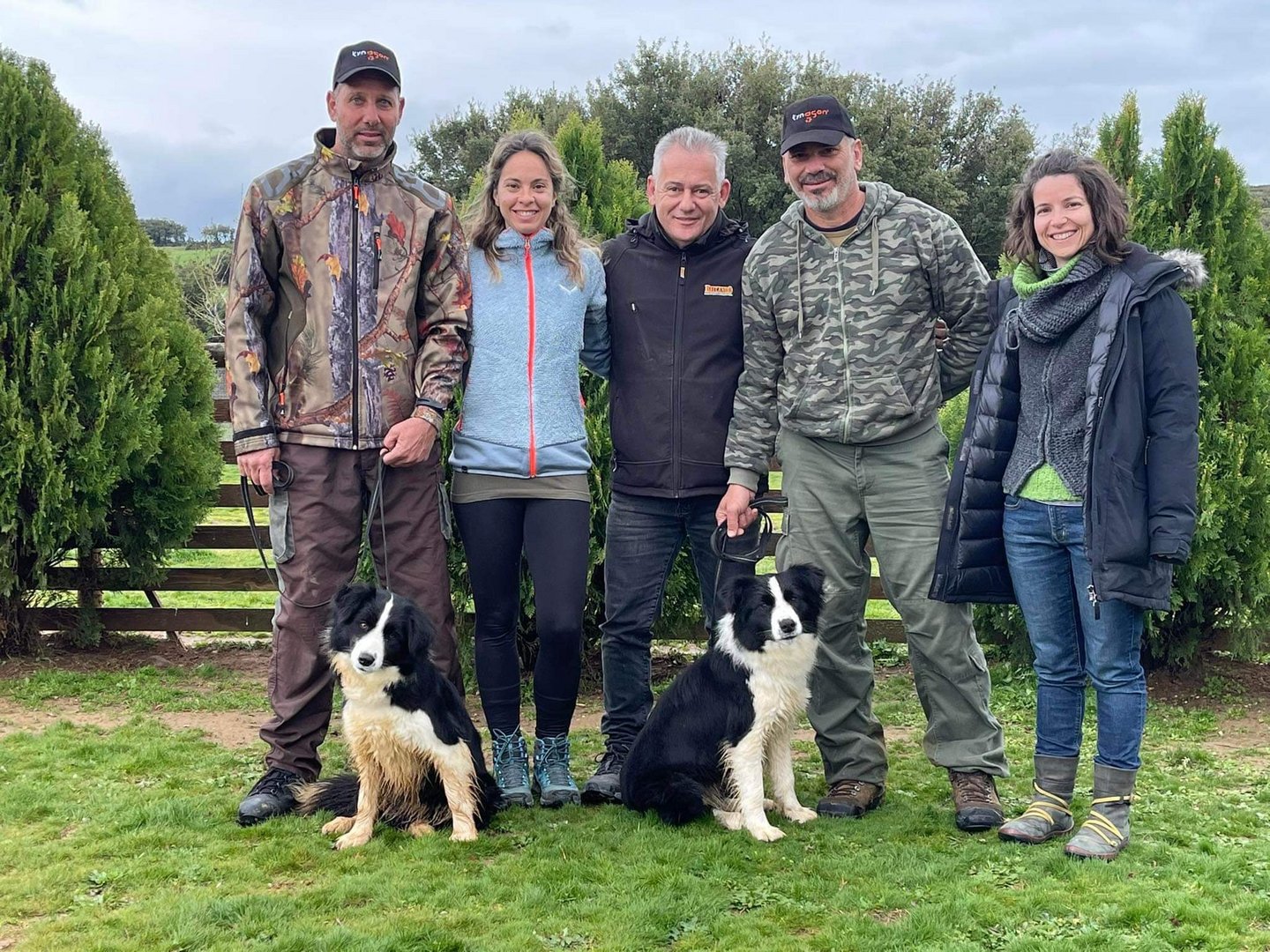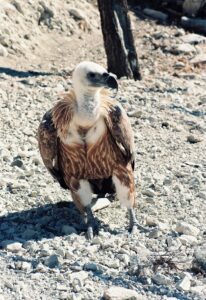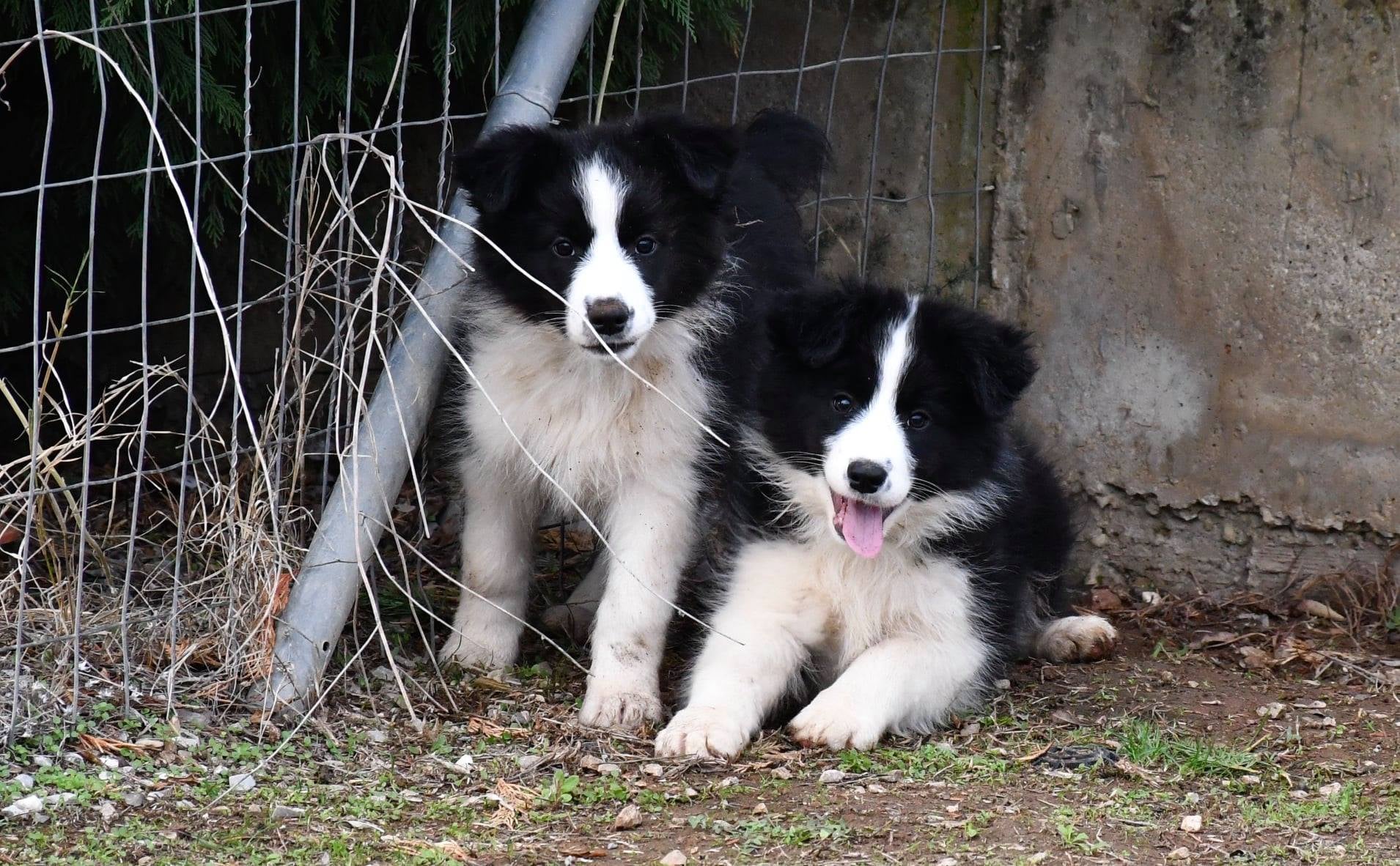Two border collies will help save rare Griffon vultures from being poisoned
Two dog handlers are in Greece training with border collies Dixie and Sofie ahead of the dogs’ arrival in Cyprus as part of an EU-funded project to protect the island’s endangered Griffon vulture population.
Andreas Koumbaris and Andreas Christoforou travelled to the Kynagon training centre in Thessaloniki for the next stage in an ambitious initiative to help protect vultures, other wildlife and sheepdogs and hunting dogs from poison illegally deposited in the countryside.
Dixie and Sofie have been training to find poison for the past 15 months. The two Cypriot dog handlers are now training with them, building up the bonds that will make them into an effective team, BirdLife Cyprus said on its Facebook page.
Once a common sight on the island, the Griffon vulture currently faces a high risk of extinction in Cyprus, with poisoning being the number one threat that has caused mass killings in the past and continues to be responsible for Griffon vulture deaths.
Poison baits are mostly used to control predators, protect game areas and harvesting as well as a means to prevent hunting in certain areas.
Vultures, although not the target, are the most susceptible to falling victim to poisoning due to their scavenging and social feeding behaviour which means that large numbers can be poisoned from a single laced carcass.
The two dog handlers also met Victoria Saravia, the Hellenic Ornithological Society’s handler, for advice and exchange of experience on the ground. Training is expected to be completed by the end of the month, with the two dogs due to return with the handlers to Cyprus to make up the first two teams locating poison baits
These will operate under the Game Service as part of the LIFE with Vultures programme.
“The two teams will carry out patrols and deal with incidents of poisoning, finding and removing from the countryside poison bait and animals and helping authorities investigate poisoning cases so that perpetrators can be brought to justice,” BirdLife Cyprus added.
Search dogs for poison baits must have excellent scent, intelligence, strength, resilience, and persistence in searching under all conditions.
Launched in 2019, the LIFE with Vultures project aims to minimise the risk of extinction to Griffon Vultures.
The four-year project (2019-2023) brings together BirdLife Cyprus, the game and fauna Service, Terra Cypria – The Cyprus Conservation Foundation and the Vulture Conservation Foundation to tackle the main threats facing the Griffon vulture and prevent Cyprus’ most threatened bird of prey from going extinct.
The project includes actions against the use of poison baits, actions to counter collisions with overhead power lines, as well as actions to increase feeding opportunities for the provision of safe supplementary food to the vultures.
Through this project, Griffon vultures have been brought from Spain to strengthen the extremely diminished Cypriot population. Ten were flown to the island in November last year, the first batch of a total of 30.
They will boost the island’s small population of 18-20 birds of this species, which cannot multiply substantially without human intervention, BirdLife said at the time.
It added that without targeted conservation actions, Griffon vultures have been predicted to disappear from Cyprus in the next 15 years.
Another key aspect of the project is the implementation of a coordinated and targeted awareness-raising campaign, both in local communities falling within the Griffon vulture range as well as island-wide, to spread the message of the importance of the Griffon vulture and the problems posed by poisoned baits in the countryside, BirdLife Cyprus said.
The project has a €1,375,861 budget and is co-funded (60 per cent) by the EU’s LIFE programme.
Another reason for the population decline is food shortage due to changes in grazing system (less free-range grazing), and changes in carcass disposal (livestock breeders are obliged to take livestock carcasses to specifically designed processing plants for disposal.
Disturbance to breeding colonies, habitat loss and collisions with electricity wires are also factors that negatively affect the population survival.
Visit www.lifewithvultures.eu to learn more about the project.









Click here to change your cookie preferences